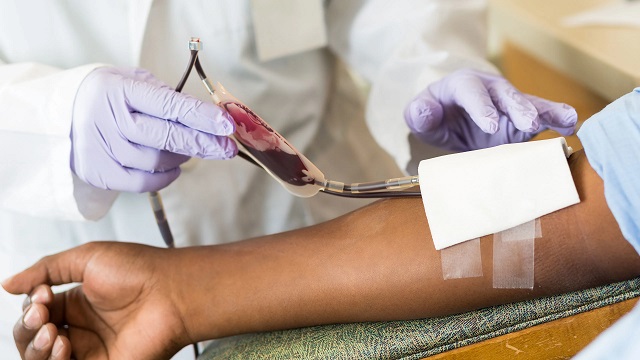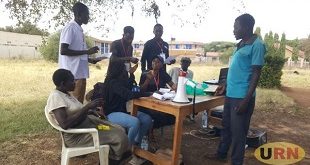
Kampala, Uganda | THE INDEPENDENT | The Ministry of Health says only 10% of Health Center IVs in Uganda can offer blood transfusion services.
Although Health Center IVs are supposed to conduct surgeries such as the caesarian section births in addition to treating conditions such as malaria which sometimes requires blood transfusion, all this remains a big challenge.
Aliyi Walimbwa, a Senior Health Planner in the Ministry told a meeting of Health Development Partners including the World Health Organisation, Global Fund, the UK and USAID on Wednesday morning that 90% of the health facilities can’t provide the service mainly because they lack blood storage equipment.
According to the Ministry guidelines, Health Center IVs that are the first level of care before one is referred to a general hospital for more advanced care are supposed to handle a population of up to 100,000 people providing services ranging from preventive care, Outpatient Curative care, Maternity and inpatient Health Services in addition to emergency surgery, blood transfusion and Laboratory services. Uganda currently has 222 Health center IVs.
Walimbwa who was presenting to donors government plans for the next financial year said they are to operationalize one hundred and eleven theatres in the health center IVs in the new financial year and that they will stock them with fridges to store such necessities as blood and medical samples.
For financing the rehabilitation of health facilities, he said they need Shs250billion but currently have a finance gap of up to Shs50billion.
Responding to this and other national priorities for the coming financial year presented by the ministry which include enhanced salaries for health workers and Shs27billion purchasing vehicles for senior health consultants, health development partners expressed concern over why the government rushed to endorse purchase of vehicles at the expense of urgent needs such as having blood storage equipment.
On his part, Arnold Kabbale, a Health Advisor at the British High Commission said going forward, they will be coordinating partners to focus on few high impact and scalable goals for health.
He added that the government should pay attention to the fact that there is a shrinking resource envelope by donors at a bad time when the country is battling a growing problem of non communicable diseases and emerging illnesses.
It was noted at the meeting that while Uganda offers free care in public health facilities, it has one of the highest outpocket expenditure on health levels, higher than countries that charge user fees.
Walimbwa said all this mess will be sorted by the mooted National Health Insurance Scheme whose establishment is pending a law.
****
URN
 The Independent Uganda: You get the Truth we Pay the Price
The Independent Uganda: You get the Truth we Pay the Price


